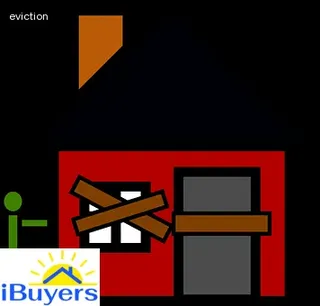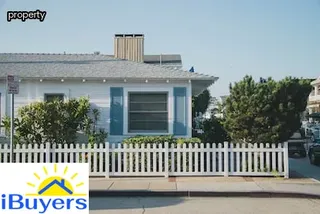Understanding eviction laws in Oregon is an important step for both tenants and landlords to take. It can be a long and confusing process, so knowing the rights of each party involved is essential.
The length of an eviction process in Oregon depends on several factors including the type of tenancy and how quickly court proceedings can move forward. Tenants should be aware that they have the right to challenge any eviction notice, as well as receive compensation for any damages caused by the landlord.
On the other hand, landlords must follow applicable state laws when evicting tenants, such as providing written notice before carrying out any action. Additionally, landlords are required to return security deposits within 31 days after a tenant moves out.
Knowing these laws can help make sure both parties are treated fairly throughout the entire process.

In Oregon, there are certain legal requirements that must be met before an eviction can take place. A landlord must give the tenant written notice and allow them a specific amount of time to answer or vacate the premises.
If they choose to contest the eviction they must file an answer with the court within 10 days from the date of service. The court will then schedule a hearing and both parties will be given a chance to present their case in front of a judge.
If the tenant does not appear for the hearing, the landlord may receive an immediate judgement without argument from the tenant’s side. In certain cases, such as non-payment of rent, it is possible for a landlord to bypass most of these steps if the tenant has not paid their rent after receiving written notice from their landlord.
In this situation, however, landlords must still go through proper channels and file paperwork with local authorities in order to ensure that all legal requirements have been met before evicting a tenant.
In Oregon, landlords are allowed to issue an eviction notice in certain situations. To start the process, the landlord must provide written notice to the tenant that outlines the reasons for eviction, such as nonpayment of rent or violation of a lease agreement.
The eviction notice must include information about when the tenant is expected to vacate the property and how much time they have before they are considered legally evicted. Depending on the situation, this could be as short as three days or up to 30 days.
During this time period, either party can choose to settle their dispute outside of court with mediation or other forms of dispute resolution. If a resolution isn't reached, the landlord can then file an Unlawful Detainer complaint in court and proceed through formal legal proceedings for an eviction.
In Oregon, these proceedings typically take anywhere from two weeks to two months depending on county guidelines and how quickly both parties respond. It's important for both tenants and landlords to understand their rights throughout this process so that all parties can reach a fair resolution in a timely manner.

In Oregon, the court system plays a key role in the eviction process. The court is responsible for officially hearing the case and determining its outcome.
It is important to understand how long an eviction process can take in Oregon so that both tenants and landlords are aware of their rights and are prepared for any legal proceedings. In most cases, the entire eviction process can take up to a month or more depending on the complexity of the situation.
The landlord must first file an official complaint with the local circuit court, which will then assign a hearing date. After this, both parties have an opportunity to present evidence and make their arguments before a judge makes a ruling on the case.
Depending on the outcome of the hearing, an order may be issued by the court allowing either party to proceed with their desired course of action.
The eviction process in Oregon, although varying from county to county, generally follows the same timeline. After the landlord has issued a notice to vacate, the tenant will have anywhere from 3-30 days to either pay rent or move out.
If the tenant fails to do either, then the landlord can file an eviction lawsuit with their local courthouse. Once this is done, a summons and complaint will be served on the tenant notifying them of the court hearing date.
This court hearing typically takes place within 14-18 days of filing and allows both parties to present their case before a judge. Afterward, the judge will issue a ruling that could take several more weeks depending on whether an appeal is filed.
It is important for both tenants and landlords to be aware of their rights throughout this process as they may vary depending on the county they are in.

When it comes to the eviction process in Oregon, both tenants and landlords must be aware of the fees involved. Typically, a landlord will charge an application fee when a new tenant moves in.
This covers the cost of running a background check. If the tenant is evicted, they may have to pay unpaid rent, late fees, court costs, and attorney fees depending on their situation.
The landlord may also be responsible for filing these fees with the court. In some cases, there may even be additional costs incurred for damages to the rental property as well as reimbursement for any missed utility payments.
Ultimately, understanding your rights and responsibilities can help ensure that you are clear on what fees you may need to pay throughout an eviction process in Oregon.
When it comes to evictions, tenants and landlords in Oregon have certain rights and responsibilities.
Knowing the rules is key to understanding how long the eviction process can take in this state.
This article will answer some of the most common questions about evictions in Oregon, including what constitutes an illegal eviction, how much time a tenant has to pay rent or move out, what happens if a tenant does not leave by the court-ordered date, and whether or not a landlord must provide relocation assistance.
It is important for both tenants and landlords to know their rights and obligations throughout the process so that they can make informed decisions about their situation.

When comparing eviction regulations across states, Oregon's laws are quite similar to other states in the U. The process of evicting a tenant in Oregon is governed by state law and can be complicated for both landlords and tenants.
The general timeline for an eviction process in Oregon typically involves the landlord providing written notice to the tenant, allowing time for the tenant to correct any violations or pay back rent, followed by a court hearing if necessary. Depending on the situation, an eviction process can take anywhere from 30 days up to 6 months or longer.
It is important for both landlords and tenants to understand their rights when it comes to evictions in order to avoid prolonged legal battles. In Oregon, landlords are responsible for notifying tenants of their rights at least 30 days prior to filing an eviction notice with the court.
Additionally, landlords must provide a written notice informing tenants of their right to dispute the eviction before being forced out of their residence. On the other hand, tenants must follow all rental agreements and comply with state law or they may face consequences such as fines or even jail time.
In Oregon, evictions can happen for a variety of reasons. One of the most common is failure to pay rent, which includes late payments, partial payments, or no payment at all.
Noncompliance with the terms of the lease agreement is another frequent cause of eviction. This could range from unauthorized pets to excessive noise complaints.
Tenants may also be evicted if they are found to be engaging in illegal activity on the premises, such as drug dealing or other criminal activities. Landlords may also need to evict tenants if they plan to sell the property or move back into it themselves.
In any case, it is important for both landlords and tenants alike to understand their rights throughout the eviction process in order to protect themselves legally.

In Oregon, a landlord is allowed to file a legal complaint against a tenant if they are not following the terms of the lease or if they are not paying rent. For example, if the tenant is causing damage to the property or consistently late on payments.
The process of filing an eviction typically starts with a written notice that outlines the issue and gives the tenant an opportunity to rectify the situation. If this does not happen, then the landlord can begin proceedings by filing an Unlawful Detainer Complaint with the court and serving it to their tenant.
The tenant will then have an opportunity to respond with an answer within seven days, after which point a hearing may be scheduled. It is important for landlords and tenants alike to understand their rights in this process so that it can proceed smoothly and fairly for all parties involved.
In Oregon, the eviction process begins when a landlord provides notice to a tenant to either comply with the terms of the lease or vacate the property. Notice can be given in one of two ways: 1) through personal service or 2) by posting the notice on the property.
Personal service requires an individual who is not involved in the dispute to personally hand-deliver a copy of the written notice to the tenant. Alternatively, if personal service is not possible, then a copy of the written notice must be posted on the property in a conspicuous location where it can easily be seen.
The notice must include specific legal language and state that if proper compliance is not made within three days (for nonpayment of rent) or 30 days (for other violations), then termination of tenancy will occur and eviction proceedings may begin.

Once an eviction notice has been issued, the landlord is legally entitled to possession of their rental property. In Oregon, this process typically takes about one month from the time the tenant receives the notice to the time when they are required to vacate.
During this period, the tenant must comply with all rules and regulations outlined in the eviction notice, such as paying any outstanding rent or removing all personal belongings from the premises. It is important for landlords and tenants alike to be aware of their legal rights throughout this process; landlords should be familiar with Oregon state laws regarding evictions and tenants should understand their rights and responsibilities under applicable laws.
If a tenant fails to meet these requirements or does not vacate by a certain date, then a landlord may pursue further legal action in order to begin evicting them permanently.
When it comes to an Oregon eviction hearing, presenting evidence in court is a critical part of the process. Landlords and tenants should both be prepared to present any evidence they have that will help prove their case in court.
Documentation such as leases, rental agreements, and written communications can all be used as evidence during the hearing. Witnesses can also be called to provide testimony, which can be helpful in providing information about the situation that led to the eviction.
It is important for landlords and tenants to understand their rights in order to protect themselves during this process. It is also helpful to have an experienced attorney on hand who can help explain the rules and regulations of an Oregon eviction hearing, ensuring that all parties involved feel secure within their legal rights.

Oregon's landlord-tenant law is a complex and ever-changing set of rules and regulations, so it can be difficult to understand your rights as a tenant or landlord. Fortunately, there are free resources available online that can help you stay informed.
For example, the Oregon State Bar offers an easy-to-read guide to landlord-tenant law, which covers topics ranging from fair housing laws to the eviction process. The Oregon Department of Justice also provides a helpful brochure with information about tenant rights and responsibilities, as well as legal remedies for tenants who experience unfair treatment from their landlords.
Additionally, there are numerous downloadable forms available on both websites that can be used in various situations involving landlord-tenant matters. Finally, if you need more detailed advice or have specific questions related to Oregon's landlord-tenant law, you should consider consulting an experienced attorney in the area.
Scheduling a demonstration to understand more about the Oregon eviction process can be a great way to learn more about your rights as a tenant or landlord. In Oregon, the eviction process typically takes around one month from start to finish.
However, depending on local regulations and laws, this timeline may vary. Knowing how long the process may take can help tenants and landlords alike plan for the future and navigate any potential issues that may arise.
Additionally, understanding your rights as a tenant or landlord is essential in knowing what steps to take throughout the eviction process in Oregon. With access to resources like demonstrations, you can gain an even better understanding of the different aspects of this process and how it applies to you.

The eviction process in Oregon can take anywhere from a few weeks to several months, depending on the nature of the dispute and whether or not it goes to court. In order to determine how long an eviction process will take, it's important to understand the steps involved as well as your rights as a tenant or landlord.
The first step is for the landlord to give notice that they intend to evict the tenant. Depending on the cause of the eviction, this notice may need to be served in person or by mail.
Once the notice is served, the tenant has a certain number of days before they must move out or face legal action from their landlord. If the tenant refuses to leave, then the landlord must file an Unlawful Detainer Complaint with the court.
After filing this complaint, there is a mandatory waiting period for both parties before any further action can be taken. This waiting period can last up to five days in some cases, depending on local laws and regulations.
If both parties are unable reach an agreement during this time, then a hearing will be held where each party presents their case and a judge makes a final ruling. If a judgement is made in favor of the landlord, then they can request that their local law enforcement remove the tenant from their property if necessary.
Oregon state laws provide landlords with clear guidelines for evicting tenants in the event of a breach of contract. As a landlord, it is important to understand and defend your rights throughout the eviction process.
First, ensure that all paperwork associated with the eviction is properly filed and served to the tenant according to Oregon law. This includes providing them with a notice to vacate and any other relevant paperwork.
You must also give them a reasonable amount of time to comply before filing an unlawful detainer action. If they fail to comply within the designated timeline, you can proceed with filing an official complaint and summons in court.
The overall process typically takes around four weeks from start to finish, but this varies depending on individual cases and how quickly both parties cooperate throughout the process. As a landlord, it is important to familiarize yourself with Oregon eviction laws so you can protect your rights during proceedings.

While court actions for resolving disputes with tenants in Oregon may be the most widely used form of eviction, there are also other alternatives that both landlords and tenants should consider. Mediation is a popular option, as it can quickly resolve matters outside of court while still providing an opportunity to ensure both parties’ rights are protected.
In this process, a mediator acts as a neutral party and helps each side come to an agreement on the issue at hand. Arbitration is another alternative many landlords and tenants choose in Oregon.
This process involves a third-party arbitrator who listens to evidence from both sides before making a binding decision about the dispute. Additionally, some communities offer tenant-landlord clinics which provide education on leases and other rental issues, as well as legal advice from volunteers or lawyers in order to help resolve tenant-landlord disputes without litigation.
It is important for both tenants and landlords to understand their rights in the event of an eviction process in Oregon. For tenants, it is essential to remain calm when facing an unlawful detainer claim.
It can be helpful to remember that tenants have the right to contest a court-ordered eviction and should take advantage of this right if necessary. Landlords, meanwhile, should make sure they are properly prepared and have all documentation available before filing an unlawful detainer claim.
Additionally, being aware of the relevant state laws is critical to ensure proper adherence to fair housing regulations. Finally, having a clear understanding of the timeline involved in an eviction process can help both parties maintain a level of composure during what may be a difficult situation.
Knowing how long the process takes and understanding each step along the way are key elements of calmly dealing with unlawful detainer claims in Oregon.

If an eviction is taking place in Oregon, it is important for both landlords and tenants to understand their rights in order to prevent illegal lockouts. As a tenant, it is within your right to stay in the property until you are legally evicted by the court.
Additionally, self-help remedies such as changing locks or shutting off utilities should not be employed by either party. It is also illegal for landlords to threaten or intimidate tenants, as well as withhold personal belongings following an eviction.
Eviction proceedings can take up to 45 days depending on the circumstances, so it is important that all parties involved are aware of their rights throughout the process.
Eviction is a process that can take time in Oregon. As a tenant or landlord, it's important to understand the timeline for an eviction and your rights throughout the process.
In Oregon, how quickly can you be evicted? Generally, the timeline for an eviction starts with the landlord providing notice of termination to the tenant. Depending on the type of notice given, it can take anywhere from one day up to 90 days before a landlord can file a lawsuit if the tenant does not comply.
If a lawsuit is filed, there are additional steps that must be taken in Oregon court before a writ of execution is issued and enforced by local law enforcement or sheriff's office - this is when the tenant must leave their rental unit. The entire process from start to finish may take anywhere from 30 days to over 6 months depending on each individual case.
It’s important as either a tenant or landlord to understand your rights and obligations through each step of an Oregon eviction process.

In Oregon, a landlord may not begin the eviction process unless rent has been unpaid for at least 30 days. However, how long you can go without paying rent in Oregon depends on whether you are a tenant or a landlord.
As a tenant, there is no limit to how long you can go without paying rent; however, the landlord may file an eviction lawsuit at any time after 30 days of nonpayment. As a landlord, the most common way to collect delinquent rent is through the court-ordered eviction process.
This process can take anywhere from 1-2 months depending on the complexity of your case and the speed of the courts. During this time, tenants have certain rights that must be respected by landlords including due process and notice before being evicted.
It is important to understand your rights as either a tenant or landlord so that you can navigate the situation properly.
Evictions in Oregon are still happening, even during the COVID-19 pandemic. Landlords may proceed with an eviction if they have followed all required steps and obtained a court order.
The eviction process can take anywhere from one to three months, depending on the circumstances and the tenant’s response. It is important for landlords and tenants to understand their rights throughout this process, as well as which actions are considered illegal.
Landlords must provide the tenant with proper notice before filing the eviction case in court. Tenants have the right to respond to an eviction notice and explain why they should not be evicted.
Additionally, landlords cannot lock out tenants, change locks, or remove their belongings without a court order. Understanding these rights is vital as both parties navigate the Oregon eviction process and its associated timelines.
In Oregon, if a tenant fails to comply with the terms of their rental agreement or commits a crime on the property, the landlord can issue a 72-hour eviction notice. This type of notice serves as an official warning that the tenant must either pay any accumulated rent owed or leave the property within 72 hours.
Depending on the severity of the violation and the discretion of the landlord, this may be all that is necessary for them to regain possession. If not, they must pursue legal action and go through Oregon’s formal eviction process.
It is important for both tenants and landlords to fully understand their respective rights under Oregon law so they can protect themselves during an eviction process.
A: The eviction process can take anywhere from two to three weeks in Oregon, depending on the type of tenancy agreement. If the tenant is a month-to-month or tenant at will, they must be given three days' notice to vacate. For rental housing agreements, tenants must be given 30 days' notice of termination.
A: The eviction process can take anywhere from a few weeks to several months depending on the type of tenancy. For Month-to-Month tenancies, it typically takes around 30 days from when judgment is entered. For Tenant at Will and Rental Housing, it can take up to 60 days or more before a trial is held.
A: The process of evicting a tenant at will, month-to-month or rental housing in Oregon can take anywhere from 2 weeks up to 2 months, depending on the availability of the court clerk and how quickly they process the eviction paperwork and send it via First Class Mail.
A: The eviction process in Oregon can vary depending on the type of tenancy agreement. Generally, for a month-to-month or tenant-at-will tenancy, the process can take anywhere from two weeks to two months. For rental housing, the process can take longer if a judgment is entered and the court clerk has to send out an eviction notice via First Class Mail.
A: In Oregon, tenants who have sustained an injury or been accused of a crime during their tenancy are protected under a statewide moratorium on evictions. Depending on the specifics of the case, the eviction process could take anywhere from a few days to several months. If you have questions about your specific situation, you should reach out to your landlord via email to discuss further.
A: The length of an eviction process in Oregon can vary depending on the type of tenancy. For month-to-month tenancies or tenant at will, it may take anywhere from two weeks to two months. For rental housing cases, the process may take longer, as a judgment must first be entered before a trial is held.
A: The length of time that an eviction process takes in Oregon depends on the type of tenancy agreement and the jurisdiction. For Month-to-Month, Tenancies, Tenant at Will, or Rental Housing agreements, it typically takes between two weeks and three months from when a judgment is entered to when a trial is held. However, if health inspections are needed, it can take longer. The court clerk usually processes eviction ordinances within five days and sends them via First Class mail.
A: Serving eviction documents in Oregon usually takes around 7-10 days, depending on the county. The process server is responsible for making sure that the tenant at will or month-to-month tenancy is served properly and in a timely manner. If the process server fails to serve the documents properly, it could result in additional time being added to the eviction process or cause actual damages to be awarded by a court.
A: The timeframe for an eviction process in Oregon can vary depending on the circumstances. Generally speaking, it can take up to two months from the time a judgment is entered until the time a jury trial is held. During this period, the court clerk must also process the eviction paperwork and send it via First Class Mail. Additionally, there may be health inspections required before the eviction process can be completed.
A: The eviction process in Oregon typically takes between two and four weeks, depending on the complexity of the case. After a judgment is entered, the court clerk will mail out the eviction ordinance via First Class Mail, which can take up to three days to arrive. If necessary, any health inspections must also be completed before the eviction process can be finalized.